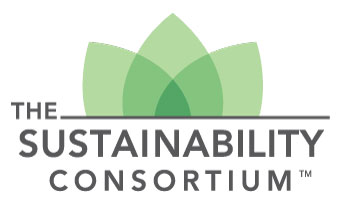New Research Shows Success with Digital Tags to Measure Clothing Use, Consumers More Positive About Durable Clothing Brands
4/28/2021, Scottsdale, AZ
The Sustainability Consortium (TSC) released today the Project WearEver: Demonstrating the Feasibility of Using Digital Tags to Measure Clothing Use report in collaboration with Arizona State University (ASU), North Carolina State University (NC State), and the University of Arkansas. The report follows the 2019-2020 pilot project, called Project WearEver, that concluded the following findings:
- Digital tags can measure the frequency and duration of clothing use with reasonable reliability
- Participant attitudes towards this idea were more positive after the trial study than before it
- There are still many practical constraints before this idea could be scaled more broadly
TSC’s project goal is to demonstrate the feasibility of using digital technology to track clothing use and identify appropriate metrics and measurement protocols to enable communication between stakeholders. The project was conceived to help create a market-based system that would incentivize clothing manufacturers to make clothes that are used more frequently, used longer, and re-used. In addition, TSC looked to incentivize retailers and to encourage consumers to show preference for clothes that have superior emotional and physical utility and durability.
Adidas, KJUS, and Prana/Renewal Workshop donated clothing for the research pilot. Technology covered in the report includes QR tags, RFID tags, Bluetooth sensors, and phone apps.
“While fast fashion still has many followers, the “slow fashion” movement is gaining momentum with consumers – they are looking for value in terms of not just cost, but cost per use,” says Dr. Kevin Dooley, Chief Scientist at TSC. “TSC wants to help build a system where consumers and retailers can compare brands on trustworthy longevity and use data to create market demand for more sustainable clothes.”
In 2019, global clothing sales were estimated to be $1.87 trillion, yet challenges in the clothing industry remain to reduce the impact of clothing production on people and the planet. Clothing that is durable, reused, or recycled reduces sustainability issues that includes water and air pollution, unsafe working conditions, and child labor. The report kick-starts efforts to create a pathway for consumers to understand the durability of clothing from brands and create ongoing communication between brands, retailers, and consumers.
Karen Leonas, Professor of Textile and Apparel, Technology and Management at North Carolina State University said, “Clothing, its production and distribution, are generally highly resource intensive, requiring large quantities of water, energy, chemicals, labor, and other natural resources while creating pollution in water ways, air, and solid waste. The majority of textiles can be recycled reducing many of these natural resources demands. However, to do so, several things are crucial. Educating and encouraging consumers on alternate disposal methods is fundamental. However, once disposed of, for efficient handling through recycling and the creation of new products, the content and production processes used in the initial creation of the clothing is necessary. This technology will contribute to increased knowledge throughout the supply chain for manufacturers, consumers, and recyclers.”
This free report is available for download here. These sponsors and partners provided significant financial or other support in the process: Blue Bite, Cisco, Ellen MacArthur Foundation, ASU’s Rob and Melani Walton Sustainability Solutions Service, and Stuffstr. TSC translates the best sustainability science into business tools that are used all over the world to create more sustainable consumer products.
About TSC
The Sustainability Consortium (TSC) is a global non-profit organization transforming the consumer goods industry to deliver more sustainable consumer products. We work to enable a world where people can lead fulfilled lives in a way that decouples their impacts on people and the planet. Our members and partners include manufacturers, retailers, suppliers, service providers, NGOs, civil society organizations, governmental agencies and academics. TSC convenes our diverse stakeholders to work collaboratively to build science-based decision tools and solutions that address sustainability issues that are materially important throughout a product’s supply chain and lifecycle. TSC also offers a portfolio of services to help drive effective improvement and implementation. Formed in 2009, TSC is jointly administered by Arizona State University and the University of Arkansas and has a European office at Wageningen University and Research in the Netherlands. For more information visit www.sustainabilityconsortium.org.
Media Inquiries:
Erika Ferrin
The Sustainability Consortium
erika.ferrin@sustainabilityconsortium.org
480-965-7752







